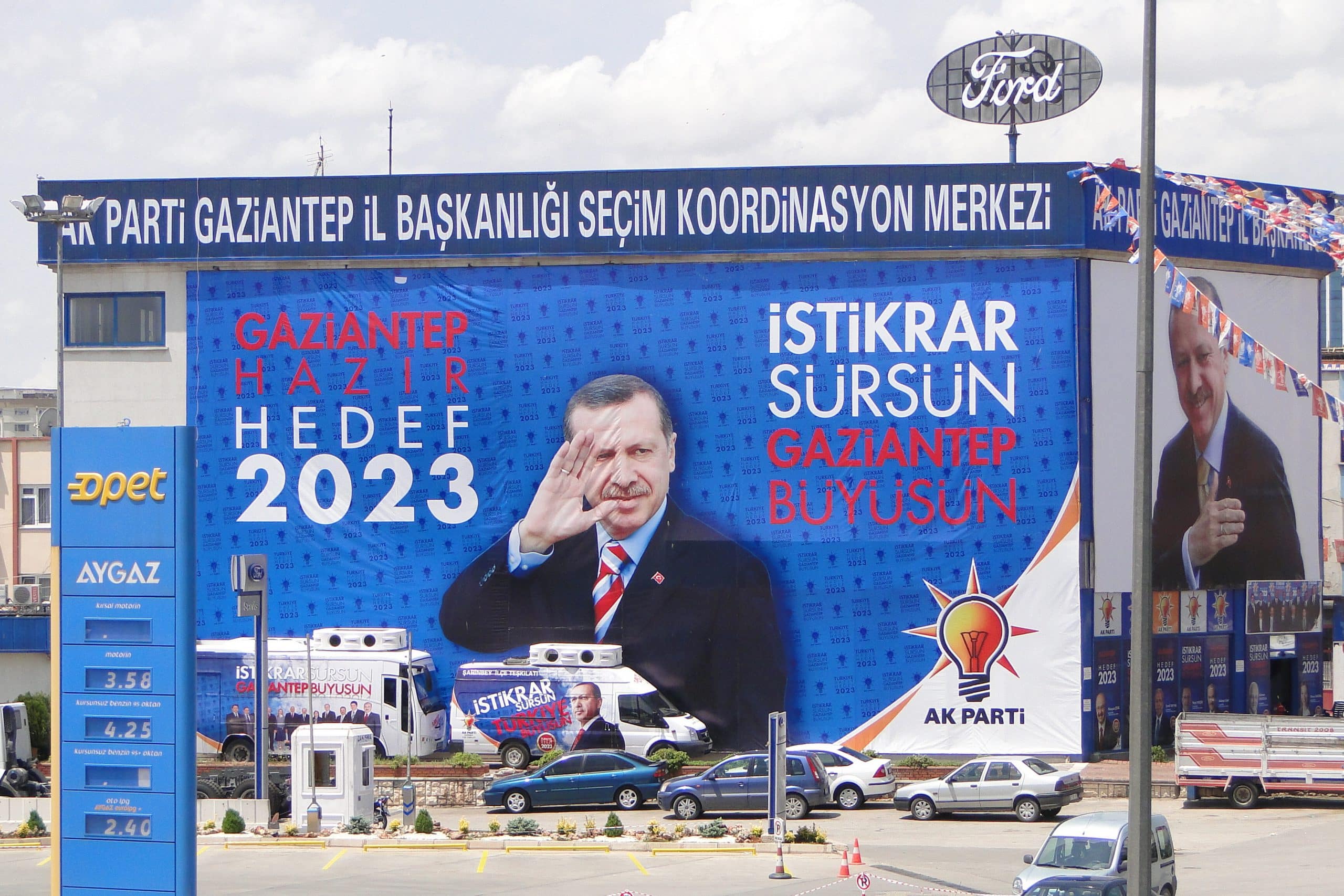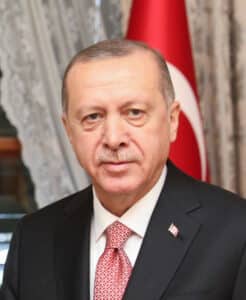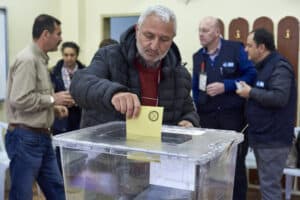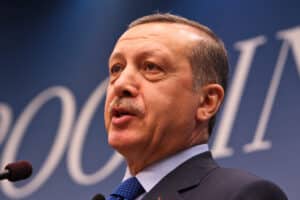Following an initiative by the Justice and Development (AK) Party of President Recep Tayyip Erdoğan and the Nationalist Movement Party (MHP), the Turkish Parliament on April 20 2018 decided that presidential and general parliamentary elections would be held on June 24 of the same year. While opinion polls have been called unreliable, opinion researchers establish that Erdoğan’s election campaign lacks strength and enthusiasm. The elections are bound to be a close call for the AKP, and will be vital in shaping Turkey’s future ideology.
Elections Considered a Statement on Turkey’s Ideology and Ataturk’s Legacy
The modern Turkish state is set upon pillars of “Kemalism” – a term encompassing republicanism, moderate nationalism and, finally, secularism – which were introduced eighty years ago by Turkey’s first president, Mustafa Kamal Ataturk. Ataturk’s legacy until today is considered the foundation of the country, and civil society celebrates him for having led Turkey away from a predominantly Islamic nation towards a liberal state based on party politics. Upon the now ruling AKP’s election into power in 2002, Ataturk’s legacy began to first be viewed negatively and then rapidly become a contested topic among political circles. After the 2016 major failed coup attempt which is still being investigated, the Turkish government abandoned Ataturk as a symbol of unity, and instead turned to uniting behind the demonization of the alleged “traitors”. The parties running for parliament in the 2018 elections greatly emphasize their respective positions on Ataturk’s principles, and the results are bound to give strong indications on the ideological orientation of Turkish society.
Elections Assumed to be a Close Call
Overall, Erdogan’s decision to hold early elections might backfire at him. In recent opinion polls, the gap between Erdogan and his opponents is closing in, and several media outlets state that it is becoming increasingly unlikely that Erdogan will win the presidential election in the first round, with even a second round proving difficult to be won. Although the People’s Alliance is leading in parliamentary polls, it nonetheless comes short of an absolute majority. An outcome of the elections could be a hung parliament which would force Erdogan, if reelected as president, to recognize the authority of the parliament.
Experts, however, call for caution concerning opinion polls in Turkey. Opinion research institute SONAR found that a large part of the electorate is not willing to talk about the election, resulting in potential false statements, unbalanced voter samples and unreliable estimates. SONAR’s Hakan Bayrakci assessed that “none of the candidates can truly steal votes from Erdogan loyalist AKP voters”. The current societal and political situation in Turkey are not in favor of the opposition, with most independent media having been suppressed under the emergency law that has been in effect since the coup attempt of 2016. According to the OSCE, the state of emergency has affected the campaigns significantly, placing “restrictions on freedom of assembly, association and expression.’’ Although Erdogan has promised to lift the emergency law after the election, most observers remain skeptical, as the law provides him with the power to rule the country by decree, which could further tighten his grip on Turkish democracy.
The Parties
The framework of the 2018 elections allows parties to form election coalitions; two of such have been announced. Out of the 86 parties registered in Turkey, 11 were considered to have enough organizational structure to actually run for elections. Out of these 11, only eight parties are now campaigning.
The People’s Alliance:
Justice and Development Party (AKP)
With 316 seats in parliament, the AKP is Turkey´s strongest party and supplies its President, Recep Tayyip Erdoğan. The AKP mainly draws its support from those living a traditional Islamic lifestyle, thus directly challenging the secular system modern Turkey is set upon. The AKP, in both its parliamentary and presidential campaign, focuses on promoting Erdoğan, who again stands as the party’s prime presidential candidate. The AKP’s election campaign circles around slogans such as
“Big states don’t think small”
“We will drain the terror swamp in Qandil”
and “June 24 will be a smack at terror barons”
and thus emphasizes its position on the conservative and nationalist side of the political spectrum.
Nationalist Movement Party (MHP)
The MHP was founded by a group that broke away from the main opposition CHP. In the 2011 elections, the MHP reaped 13% of the votes, securing its position in parliament. Due to its alignment with the Eurosceptic and ultranationalist policies of the AKP, the MHP has worked closely together with the ruling party, supporting it in the 2017 Referendum which abolished the position of Prime Minister and increased the amounts of seats in parliament from 550 to 600. For the upcoming elections, the MHP has not nominated its own presidential candidate, but instead supports the AKP’s Erdoğan. Although party leader Bahçeli is considered more open to cooperation with the EU, the MHP’s campaign is focused around securing public peace and fighting terror through restrictive policies, and emphasizes the role of the Turkish military.
The Nation’s Alliance:
President Recep Tayyip Erdogan’s abrupt decision to call early elections more than a year ahead of schedule had, among other things, the goal of catching the opposition off guard. However, three oppositional parties on May 2nd came together in a rare alliance to combat the dawning presidential system, uniting the secular left CHP with the conservative liberal iYi, center-right DP and far right SP. With the sole goal of the alliance being the return to a parliamentary system, each party is competing in the presidential election with its own candidate and substantial program.
Republican People’s Party (CHP)
The CHP launched its presidential campaign with the charismatic Muharrem İnce as their candidate. Rooted in social-democracy and Kemalism, the party advocates raising social security and the average standard of living by modernizing the Turkish economy and ending the costly military operations in Syria and Turkish Kurdistan. Instead, dialogue and diplomacy should define Turkish foreign policy, which would also entail intensifying cooperation with NATO allies and getting the EU ascension of Turkey back on track. The CHP offers a strong opposition to the AKP, and currently holds 131 of 550 seats in Parliament.
Good Party (iYi)
The iYi was founded in late 2017 after current party leader Meral Akşener broke away from the MHP over the party’s support for Erdogan’s consolidation of power. The iYi relies on the alliance with the stronger CHP, having only six seats in the current parliament itself. As a liberal conservative politician, Akşener is in support of fiscal relaxation as a measure to strengthen the Turkish economy. The iYi itself is more focused on cultural and identity issues, stating that it wants a return to a Kemalist state as Turkey was with Ataturk, while remaining at the forefront of international affairs. Such a position does not exclude the option for new talks with the EU over cooperation and possible ascension. Another major issue are women’s right, and Akşener lobbies for equal status for women in society through education and cultural change.
Democratic Party and Felicity Party
The two smaller parties in the alliance, the Democratic Party (DP) and the Felicity Party (SP), both adhere to their own traditional programs. The DP’s program is very close to that of the iYi, while the SP’s program Islamist program is more conservative.
Parties without Alliance:
People’s Democratic Party (HDP)
The HDP is a leftist party currently occupying a marginal amount of seats in parliament. The party program emphasizes democratic and peaceful politics, and portrays the HDP as the representative of ethnic and religious minorities, women and intellectuals. In the past, the party has greatly suffered under the imprisonment of nine of its members of parliament. Its presidential candidate, the Kurdish politician Selahattin Demirtas, is currently held in prison under terrorism charges, and is conducting the election campaign from there.
Patriotic Party (VP)
The VP is a nationalist, left-wing party that currently holds no seats in parliament. Its election campaign circles around centralization, representation of workers, and the principles of Ataturk’s modern Turkish state.
Free Cause Party (Hüda-Par)
The Hüda-Par is primarily a far right Sunni Islamist party. In previous elections, it did not manage to surpass the 10% threshold to enter into parliament, and it remains marginalized. The Hüda-Par’s main goal is the constitutional recognition of Kurdish culture and language.
Sources Aljazeera I ǀ Aljazeera II ǀ Bloomberg ǀ Deutsche Welle I ǀ Deutsche Welle II ǀ European Forum ǀ The Guardian ǀ OSCE ǀ AKP ǀ Democratic Party ǀ Felicity Party ǀ Free Cause Party ǀ Good Party ǀ Nationalist Movement Party ǀ Patriotic Party ǀ People’s Democratic Party ǀ Republican People’s Party



